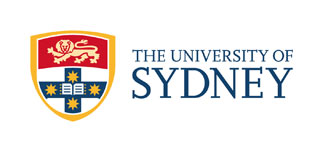Surfaces: A Junction of Geometry, Topology and Analysis
-
The proseminar meets Mondays at 15:00 for a 15:15 start in Carslaw 535A. It consists of lectures given by the participants.
We will follow Richard Evan Schwartz's book
Mostly Surfaces, A.M.S. Student Library Series 60, 2011.
An unformatted draft with identical text (but no index) is freely available.
background reading
-
Every participant is expected to read Chapter 1 to gain a feeling for the context of the individual presentations and a flavour of the mathematics involved.
We will cover Part 1 Surfaces and Topology, Part 2 Surfaces and Geometry and Part 3 Surfaces and Complex Analysis of the book. The first chapter of each part (chapters 2, 8, and 13 respectively) will not be covered in presentations, and participants are expected to work through these chapters. Some (but not all) material in these initial chapters will be revision or reformulation of material seen in other courses.
presentation
-
In your presentation, you are not expected to cover the entire contents of the assigned chapter but rather to highlight and explain the main points, give key examples and go through one or two proofs that are insightful. Proofs should be given at a level of detail that you judge to be sufficient for your peers. For instance, if a proof contains a routine calculation, you can summarise this calculation in one or two sentences without going through it in detail. Each participant is expected to read ahead before each seminar, and to work through the parts of the chapter that were not covered in lectures. Your presentation should be prepared with this in mind, and the audience is expected to ask questions, and engage in discussions. I am more than happy to assist you in preparing your presentations.
assessment
-
Two 90 minute presentations (assessment 75% by staff and 15% by peers). Participation (assessment 5% by staff and 5% by peers).
The allocation of topics will be fixed by January 2014.
assessment criteria
-
Presentations: The major assessment criteria for your presentation are clarity, accuracy, mathematical understanding, attention to detail, good presentation style and selection of material from the chapter. In order to pass the unit successfully, you must attend all presentations!
-
Participation: Level of preparation, engagement during the lecture and in the subsequent discussion, contribution to problem solving will be the major assessment criteria.
schedule
-
Reading: Chapters 1 and 2
- Monday, 10 March (Week 2)
- Diana Nguyen: The Gluing Construction
- Monday, 17 March (Week 3)
- Kevin Liang: The fundamental group
- Monday, 24 March (Week 4)
- Claire Edmunds: Examples of Fundamental Groups
- Monday, 31 March (Week 5)
- Abraham Ng: Covering Spaces and the Deck Group
- Monday, 7 April (Week 6)
- Somasuntharam Arunasalam: Existence of Universal Covers
-
Reading: Chapters 8 and 9
- Monday, 14 April (Week 7)
- Kevin Liang: Hyperbolic Geometry
- Monday, 21 April
- Easter Break
- Monday, 28 April (Week 8)
- No seminar – Stephan in Japan
- Monday, 5 May (Week 9)
- Diana Nguyen: Riemannian Metrics on Surfaces
- Monday, 12 May (Week 10)
- Claire Edmunds: Hyperbolic Surfaces
-
Reading: Chapter 13
- Monday, 19 May (Week 11)
- Abraham Ng: Disk and Plane Rigidity
- Monday, 26 May (Week 12)
- Somasuntharam Arunasalam: The Schwarz-Christoffel Transformation
- Monday, 2 June (Week 13)
- TBA: Riemann Surfaces and Uniformisation
additional references
- "Topology & Groups" by Marc Lackenby
- "Geometry and the Imagination" by David Hilbert and S. Cohn-Vossen
- "Indra's pearls (The vision of Felix Klein)" by David Mumford, Caroline Series and David Wright
games
These geometry games by Jeffrey Weeks can help to gain some intuition about
tilings, curvature and group actions:
You are especially encouraged to explore the hyperbolic games, and to go through the study questions, which are accessible
through the games' help menu.

